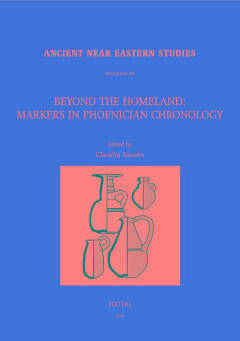
- Afhalen na 1 uur in een winkel met voorraad
- Gratis thuislevering in België vanaf € 30
- Ruim aanbod met 7 miljoen producten
- Afhalen na 1 uur in een winkel met voorraad
- Gratis thuislevering in België vanaf € 30
- Ruim aanbod met 7 miljoen producten
Zoeken
Omschrijving
Despite the flurry of research on aspects of Phoenician culture, encompassing their socio-economic developments and the mechanics of their settlement of Mediterranean coastal lands, the fundamental issue of dating Phoenician achievements remains quite fluid. A range of criteria - textual sources, artefact analysis, stratigraphic data, and, increasingly, radiocarbon readings - provide a bewildering and sometimes conflicting picture of Phoenician chronology, which, in many respects, remains tenuous and free-floating. Owing to the nature of Phoenician colonisation, its chronology is often compartmentalised into discrete regional units. This volume brings together a number of essays focusing squarely on the chronology of the Phoenician-Punic world, ranging from the homeland to the western settlements. The essays are written by specialists in their field, who have encapsulated the chronological framework, and the problems therein, for regions touched by Phoenicians interests. A benchmark study, Beyond the Homeland will be of value not only to Phoenician-Punic scholars, but also to those in related fields who need an accessible study (in English) to navigate the chronological complexities of the field.
Specificaties
Betrokkenen
- Auteur(s):
- Uitgeverij:
Inhoud
- Aantal bladzijden:
- 655
- Taal:
- Engels
- Reeks:
- Reeksnummer:
- nr. 28
Eigenschappen
- Productcode (EAN):
- 9789042920149
- Verschijningsdatum:
- 31/12/2008
- Uitvoering:
- Hardcover
- Formaat:
- Genaaid
- Afmetingen:
- 221 mm x 305 mm
- Gewicht:
- 2698 g

Alleen bij Standaard Boekhandel
+ 196 punten op je klantenkaart van Standaard Boekhandel
Beoordelingen
We publiceren alleen reviews die voldoen aan de voorwaarden voor reviews. Bekijk onze voorwaarden voor reviews.











